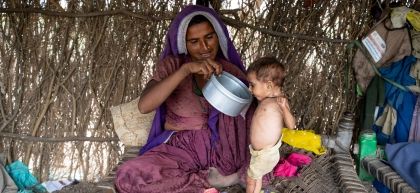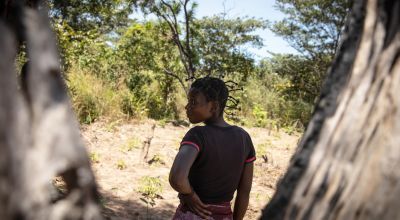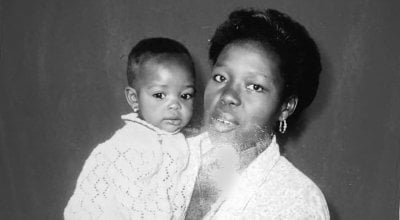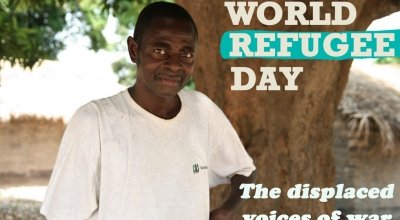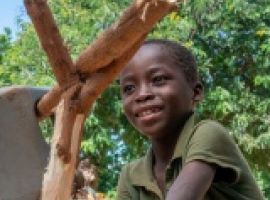
Read our 2022 annual report

Knowledge Hub
Violence, displacement and return in the Democratic Republic of Congo
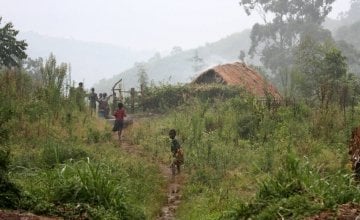
Concern Worldwide Emergency Programme Coordinator Charlie Walker reports on how cycles of violence, displacement and return are disrupting lives in the Democratic Republic of Congo.
Cycles of violence
For many, life in Masisi in eastern Democratic Republic of Congo is a constant cycle of violence, displacement, and return. Many villages are affected time and time again as armed groups take territory, are forced out in subsequent clashes, and return to the bush.
Later, they re-launch attacks and the DRC's cycle of crisis begins again. In every attack and counterattack, families are forced to flee their homes. Some leave at night to sleep in the nearby forest or in their fields. Others abandon their villages altogether. Often civilians themselves are targeted. Sexual violence is rampant, and armed groups have long used rape as a weapon of war.
Instability
As Concern’s Emergency Programme Coordinator in Masisi, much of my time is spent constantly monitoring security. Even a small incident could ignite the ethnic tensions – the undercurrent of the conflict – and force us to suspend our programmes. Thankfully, since I arrived six months ago, we have never had to stop our programme activities for very long.
The constant volatility, however, forces us to be flexible and nimble with what we do and where we do it. Each time a family is displaced, they leave behind homes, possessions, livelihoods, and whatever education opportunities existed for their children. They often settle with other families who are then forced to share whatever food, shelter, and income they have, driving communities deeper into poverty.
Basic survival kits
Working with populations who are constantly uprooted requires giving people the basics that they need to survive while also helping them to recover what was lost. Concern provides a rapid response for newly displaced families settling in camps, spontaneous displacement sites, and host communities. With the support of European Commission's Humanitarian Aid and Civil Protection department (ECHO), USAID and Irish Aid, we distribute essential relief items like tarps, clothing, blankets, cooking sets and soap. We also help vulnerable host families as well as people returning to their homes after conflict to restore what assets they lost and restart livelihoods activities.
For 30-year-old Baeni, these relief items were the first assistance she, her husband, and five children received after fleeing their home for a camp near Masisi in North Kivu.
After I arrived in the camp, life was so hard. We had nothing – no belongings, nowhere to shelter, and nothing to sleep on…The kit had pots, plates, cutlery, blankets, clothes, and other really important things for the household. Then my husband started constructing the temporary shelter where we and our children could live. Now every three months, Concern also gives us sanitary towels and soap, so that we can always be clean.
Last year, fighting in between Masisi and Walikale pushed us to work in two new areas so we could respond to the needs of 1,831 households. This was in addition to 5,919 households we were already working with across the Nyabiondo-Lukweti, Shoa, and Kazinga areas, and over 5,000 households which we have been working with across five displacement camps in Masisi.
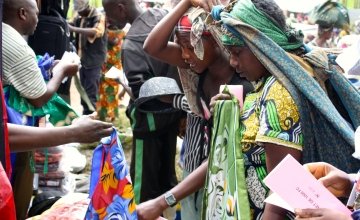
Improving livelihoods
We then focus on helping families replenish their assets and earn an income. We organise fairs where products can be purchased using vouchers that vendors later exchange for money. This gives people the power to choose what they need most while simultaneously creating a space where goods can be sold. Last year alone, 5,359 displaced families and 7,146 households in vulnerable host communities participated in the fairs.
Baeni used her vouchers to buy materials to start a small business selling donuts.
Now I am among one of the biggest sellers in the camp. We can afford food and we have enough for other modest needs. We are starting to improve our lives.
Listening to communities
One of the most fulfilling parts of my job is that I have so much contact with people like Baeni – the people we are in Masisi to serve. We do not make our decisions from a walled compound or a sterile office. We go out to communities, ask questions and, most importantly, listen. I am constantly out, tramping up hillsides and walking through fields to understand what people need and if what we are doing is working.
Deeply involved
I feel deeply involved with the communities in which we work and ultimately great responsibility to them. Making sure that our actions have maximum positive impact for the lives of the poorest and most vulnerable, and ensuring that we uphold ‘do no harm’ humanitarian principles means that every action we take has to be carefully weighed in terms of its risk versus reward – both for our staff and people we work with. We have to be accountable to them and integrate response mechanisms into our programmes so people can tell us if they are not happy with what we are doing and if we are inadvertently putting them at any risk.
Baeni once told our team:
Concern staff treat us like equals. And without Concern, we would not be where we are today.
To me, this is the best compliment we could possibly receive.
Keep in touch
Find out more about this, and our other work, by following us on Instagram.
